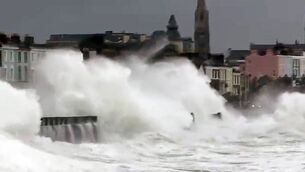Parties begin talks to form new Stormont government

A new talks process is about to begin at Stormont to determine the shape of the new power-sharing government.
Northern Ireland's newly-elected MLAs have up to two weeks to thrash out priorities for a programme for government and establish which parties will take on ministerial portfolios.













